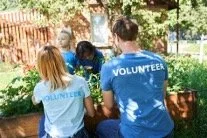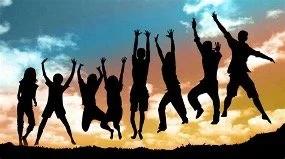Kids and community – there is nothing to do but hang on street corners….
This years Mental Health Awareness week is focusing on community, and as someone who works with children and young people, I often see and hear the struggles of younger people who feel disconnected from their communities.
In West Yorkshire, over the last 15 years, there have been significant funding cuts to youth workers, youth activities and youth centres, which equates to about 70% of services. This figure helps to explain an increase in anti-social behaviour, recreational drug and alcohol use and vandalism by the young people in our society. With few or limited clubs, affordable or accessible activities, and a negative view of the general public of groups of young people hanging around in parks and other public areas, there seems to be an ever increasing gap opening up between our young people and our community.
This is significant when we look at children and young people who have experienced any form of trauma. They are more at risk of isolation and loneliness, anxiety and depression, and they are more likely to turn to substances or negative behaviours in order to meet that need to feel connection.
Here are some suggestions about how young people can feel and get more involved in their communities:
· Plant a community garden – empower and support young people in planning, organising, volunteering – even approaching companies or councils to find appropriate spaces
· Volunteering – there are organisations set up to support under 18’s find volunteer work, but there may also be opportunities in the local community working with older people, hospitals, religious centres.
· Raise awareness – find out about a local issue, or an issue that effects the people of the community and promote young people to research and raise awareness. Setting up a stand in a local town, creating flyers or Social Media posts around the issues. Campaigning for issues that mean something to the community can bring a real sense of value and belonging.
· Mentoring – Young people who have experienced adversity have an awareness that, given the right support, can be vital to help others who are struggling, and can help to heal those who are managing long term distress. Encouraging ‘big brother/sister’ programs between teens and younger kids, mentoring in schools and other positive connections can be so valuable.
This is one of the reasons Youth Trauma Allies offer training, signposting and resources to schools and parents, as well as reflective practice spaces for school staff, families, community groups to strengthen their well-being. We are informed by the young people we want to support, and want to break down the barriers that are in place to stop our young people being part of their local community and feeling valued.
If you want to find out more about how we can help you create mentally healthy and supportive communities around our young people, don’t hesitate to get in touch.



